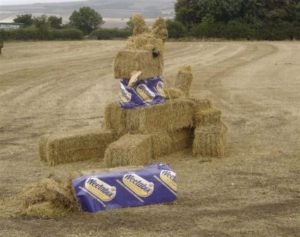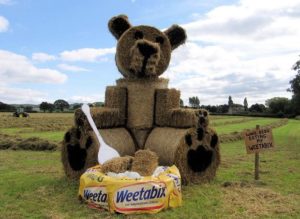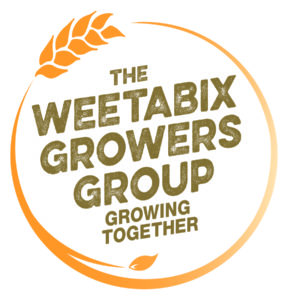
Weetabix has renewed its commitment to its industry leading ‘wheat protocol’. This comes ahead of the 10th harvest under the scheme, which promotes sustainable farming practices.
The wheat protocol, first established in 2010, sees the Weetabix Food Company source its wheat from farms located within a 50-mile radius of its mills in Burton Latimer, Northamptonshire.
The protocol pushes beyond the requirements of the Red Tractor Assurance Scheme and Entry Level Environmental Stewardship scheme to further reduce food miles and fertilizer usage.
It ensures that around 75,000 tonnes of locally sourced, high-quality wheat is used to make the nation’s favourite cereal. In contrast to cereal manufacturers that buy wheat on the open market, Weetabix continues to work alongside its farmers to establish stringent rules covering the quality, consistency, traceability and environmental sustainability of each harvest. Farmers proudly display a ‘wheat grown for Weetabix’ sign in their fields so that consumers can identify the crops that will end up in their breakfast bowl.

To celebrate the 10th protocol harvest, Weetabix has announced the return of its ‘Wheat Art’ competition, which sees local farmers compete to create a winning sculpture from their straw bales.
The competition gives participants the chance to secure a £1,000 donation for a charity of their choice. The winners will be announced in time for harvest festival in September. Previous years have seen farmers create impressive and humorous structures, including scenes from Wallace and Gromit, a Weetabix-eating teddy bear, and a lion.
“We’re very proud to use the high-quality wheat from local farmers within 50 miles of our site in every bowl of Weetabix, and are delighted to confirm our commitment to the wheat protocol long into the future. It has been of enormous benefit to Weetabix and the British public, who are guaranteed a delicious and nutritious breakfast because of the quality of wheat used in Weetabix,” said Hitesh Bhatia, Strategic Sourcing Manager at Weetabix.

“It has been a challenging British summer with the rain, but our farmers have had their Weetabix and are getting on with the job so that the nation can have theirs. It’s great to celebrate our 10th protocol harvest with our farmers through the Wheat Art competition. As the nation’s favourite cereal, Weetabix is an iconic brand and we can’t wait to see some equally iconic wheat art through the competition!”
Andrew Crossley, Farm director for Thurlow Estate Farms who supply wheat to Weetabix, said: “To grow wheat for Weetabix is a local badge of honour. This will be my 8th harvest here and this year we have over 1800 hectares that have produced above budget yields. After a damp start to the harvest, the record temperatures we saw over the Bank Holiday weekend saw a successful wheat harvest rapidly conclude. I know the quality of our wheat will be reflected in every spoonful enjoyed at British breakfast tables. With our environmental stewardship schemes and Weetabix’s support I’m confident for the future of the British countryside.”

Several times a year, Weetabix consults with its Growers Group, a council of local farmers and merchants, to review and update the wheat protocol to drive continuous improvement in environmental and food safety standards. Weetabix recently hosted an annual meeting with its key growers and merchants to share research on the effects of farming on wildlife and the environment and discuss how this could impact on the protocol.
Over the last decade, over 350 local farmers have participated in the scheme, growing approximately 75,000 metric tonnes of wheat each year across around 4,000 acres, equivalent to almost 3,000 football pitches.
Weetabix products are found in half of all UK family cupboards, and it is the number one cereal brand in the UK. In the UK more than £150 million of products are sold annually, with two Weetabix products bought every second. Based in Burton Latimer since 1932, in recent years Weetabix has invested in excess of £45 million to raise capacity while preserving its commitment to local sourcing of wheat.
Source: Weetabix

You must be logged in to post a comment Login